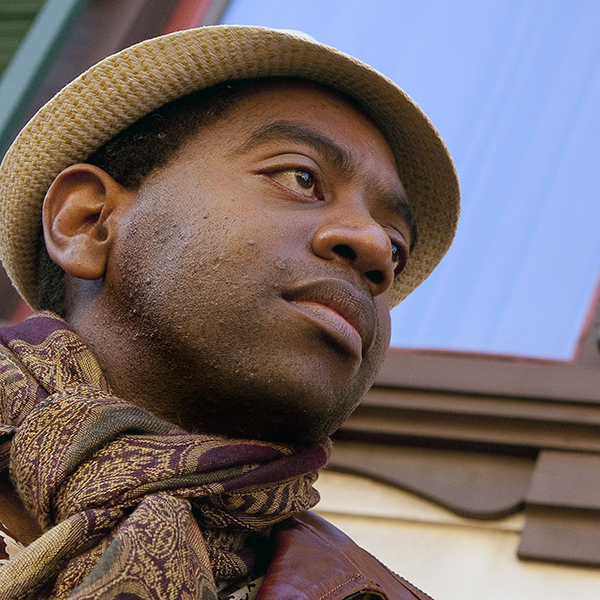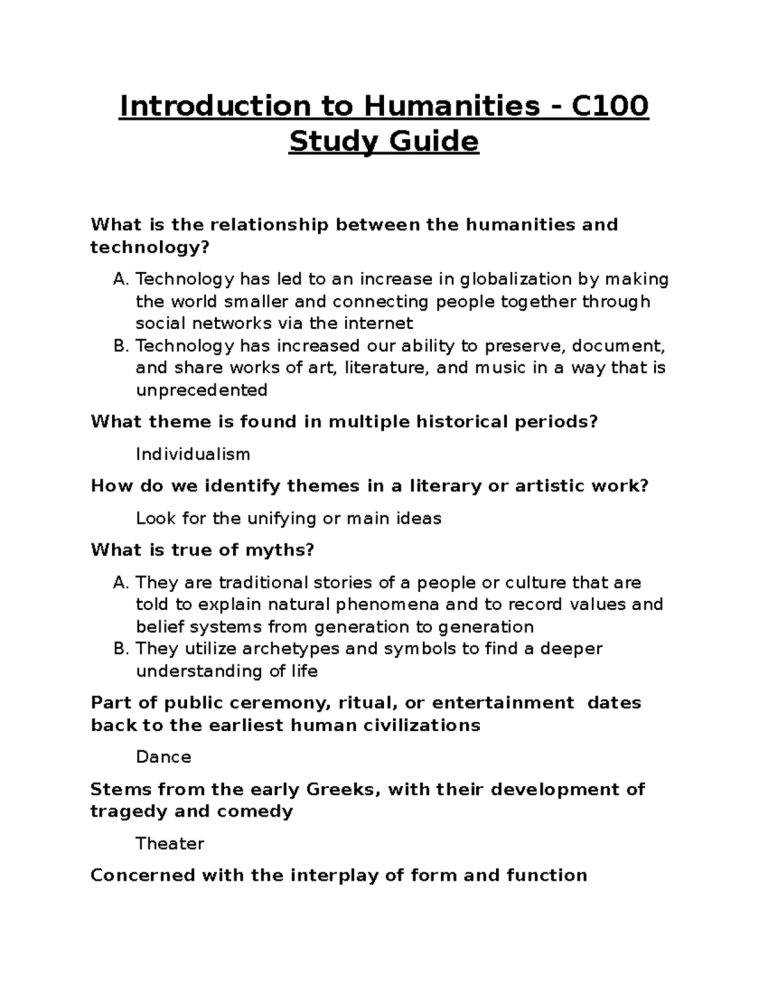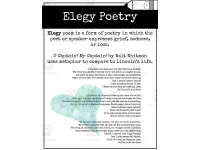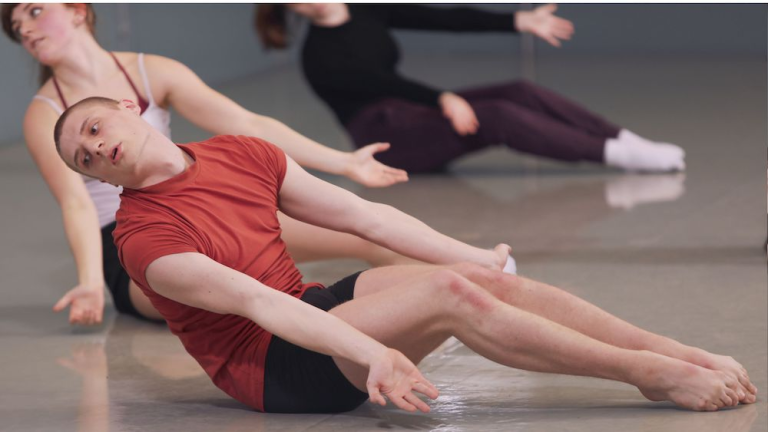
Yosvany Terry, an eminent figure in Afro-Cuban jazz, has made waves in the music community through his innovative blend of cultural influences. With his roots steeped in Cuban traditions, Terry’s research journeys to West Africa have profoundly informed his musical narrative, tying together rhythms that resonate deeply with audiences. As a senior lecturer and director of the Harvard Jazz Ensembles, he passionately incorporates these rich musical heritages into educational initiatives and public performances, such as the upcoming ArtsThursdays event on May 1. This dedication not only enhances his compositions but also elevates the teaching of jazz, expanding the understanding of its global connections. Through his work, Yosvany Terry continues to safeguard and celebrate the powerful legacy of music that transcends borders and speaks to the human experience.
In exploring the dynamic interplay of cultures within musical landscapes, Yosvany Terry stands at the forefront of a vibrant movement that celebrates Afro-Cuban rhythms and West African musical influences. His role as a composer and educator reflects a commitment to acknowledging and preserving the intricate ties that bind different musical traditions. By engaging students and audiences through innovative concerts and collaborative events like ArtsThursdays, he fuses the past with contemporary expressions. This artistic mission not only enriches the educational framework at Harvard but also paves the way for a broader appreciation of world music traditions. Join Terry in a compelling exploration of the sounds that have shaped identities across continents.
Yosvany Terry’s Exploration of Afro-Cuban Jazz
Yosvany Terry, a prominent figure in the world of Afro-Cuban jazz, seamlessly blends his Cuban heritage with the rich musical traditions of West Africa. His journey in music is not only a personal exploration but also a scholarly endeavor that seeks to unravel the connections between various cultural expressions. Through his research in Benin and his performances in Cuba, Terry has uncovered how these traditions have not only shaped his artistry but have also influenced the broader spectrum of jazz music across the Americas. This fusion of Afro-Cuban rhythms with African musical roots allows for a deeper understanding of contemporary jazz and its historical lineage.
In his performances, Yosvany Terry often incorporates elements learned from his travels, engaging audiences with the vibrant sounds that stem from both Afro-Cuban and West African music. As a senior lecturer at Harvard, he is committed to imparting this knowledge to his students, enhancing their appreciation for the intricacies of jazz. This commitment contributes to the ethos of preserving cultural identity through music, demonstrating how genres can evolve while still honoring their origins. Terry’s unique perspective as both an educator and performer amplifies his role in fostering a new generation of musicians who respect and understand the traditions from which they draw inspiration.
The Cultural Significance of Jazz Education
Jazz education at institutions like Harvard is essential for cultivating future generations of musicians who explore and expand upon the genre’s roots. Under Yosvany Terry’s leadership, the Harvard Jazz Ensembles have become a hub for learning about the intersections of various musical influences, from traditional Afro-Cuban sounds to modern jazz idioms. By engaging with diverse musical backgrounds through invited artists and educational trips to countries like Cuba and the Dominican Republic, students gain firsthand experience of how cultural contexts shape music. This hands-on approach empowers students to create new works that reflect and honor these rich traditions.
Moreover, the importance of integrating research into performance cannot be overstated. Terry’s initiative to include his findings from his travels in Benin into his classroom teaching exemplifies a dynamic approach to education. It allows students to connect the theoretical aspects of jazz with its practical applications, understanding how historical narratives inform artistic expression. This educational model not only enriches students’ learning experiences but also encourages them to view music as a living dialogue that transcends borders, thus fostering a deeper cultural awareness and appreciation for the artistry embedded in Afro-Cuban jazz.
ArtsThursdays and its Impact on the Community
ArtsThursdays serves as a remarkable initiative that bridges the gap between Harvard and the surrounding communities, showcasing the vibrant artistic practices of faculty like Yosvany Terry. By offering free concerts that highlight the collaborative spirit of artists across disciplines, the program encourages not just performance but also broader engagement with the arts. Each event, including Terry’s upcoming performance, emphasizes the intersection of research and creativity, allowing attendees to understand the stories behind the music and how they resonate on multiple levels within the community.
The integration of workshops and interactive sessions in conjunction with performances, such as the upcoming dance workshop related to Terry’s research, further extends the reach of this initiative. ArtsThursdays inspires participation across various platforms, drawing in audiences who may not typically engage with the arts. This not only enriches the cultural fabric of the community but also fosters a spirit of collaboration and innovation within the arts, setting a powerful precedent for future cultural programming at Harvard and beyond.
Preserving Cultural Traditions through Music
Yosvany Terry’s work is deeply rooted in the preservation of cultural traditions that have shaped musical forms like jazz. His research illustrates how the heritage of Afro-Cuban rhythms is interwoven with West African musical influences, creating a rich tapestry of sound that reflects resilience and identity. The act of performing alongside native musicians in Benin allowed Terry to witness firsthand how these traditions are maintained as living practices. This experience informed his artistic output and reinforced his commitment to safeguarding these cultural expressions in contemporary contexts.
The historical significance of preserving these traditions extends beyond mere aesthetics; it represents a form of resistance against cultural erasure. For many Afro-descendants, music serves as a vital link to ancestry and identity, creating spaces where cultural narratives can thrive. Terry’s educational initiatives aim to instill a sense of pride and knowledge in students about these musical roots, fostering a new generation of artists who respect and uplift the cultural histories that inform their creativity. By bridging the past and present, Terry emphasizes the importance of maintaining artistic connections to ensure cultural continuity.
Innovative Collaborations in Jazz Education
At Harvard, Yosvany Terry promotes innovative collaborations that merge music education with interdisciplinary approaches. His work with colleagues in fields like engineering explores the potential of AI in understanding and interpreting musical traditions, particularly those that have historically been marginalized due to a lack of representation in data sets. This partnership exemplifies a forward-thinking approach to jazz education that not only enriches the course content but also prepares students for the future of music-making in a technology-driven society.
These innovative collaborations allow students to engage with music in a multifaceted manner, encouraging them to think critically about the role of technology in artistic expression. By combining traditional music knowledge with modern techniques and tools, students gain a comprehensive understanding of how to navigate the evolving landscape of music. This engagement prepares them not just as performers, but as informed artists capable of pushing the boundaries of creativity, thus ensuring the continued relevance and evolution of jazz in contemporary culture.
The Influence of the African Diaspora on Modern Jazz
The African diaspora has played a pivotal role in shaping modern jazz, infusing it with a rich array of rhythms, melodies, and cultural narratives. Yosvany Terry’s research highlights the deep connections between West African music and its impact on Afro-Cuban sounds, underscoring the significance of understanding these roots to fully appreciate contemporary jazz. By tracing the origins of musical elements, Terry enables students to recognize the profound influences that have shaped the genre and continue to resonate today.
As students engage with these concepts in the classroom, they develop a greater awareness of the historical context surrounding their musical practices. Terry’s approach encourages them to see jazz not just as a performance medium but as a historical dialogue that reflects the struggles and triumphs of the African diaspora. This understanding enriches their artistic expression, allowing them to draw upon a diverse array of influences, ultimately fostering a more inclusive narrative within the jazz tradition.
Transforming the Jazz Experience through Travel
Yosvany Terry’s philosophy on jazz education emphasizes the significance of travel as a transformative experience for aspiring musicians. By organizing trips to countries like Cuba and the Dominican Republic, students immerse themselves in the local music culture and learn directly from practitioners who embody musical traditions. This hands-on engagement goes beyond conventional classroom learning, providing students with unique insights and practical knowledge that enhance their artistic development.
The impact of these travel experiences is profound, as students engage in collaborative concerts and learn through real-life interactions with music masters. These opportunities not only broaden their musical horizons but also deepen their understanding of global cultural contexts. Terry’s commitment to this model of education ensures that students are well-prepared to embrace the diversity of sounds and styles that characterize modern jazz, fostering an appreciation for global musical influences that they can carry into their future careers.
The Journey from Research to Performance
Yosvany Terry’s creative process exemplifies the journey from research to performance, where academic inquiries inform artistic expressions. By drawing connections between his research in Benin and his performances, Terry creates a dynamic narrative that showcases the evolution of ideas into musical works. This approach not only enriches his artistry but allows audiences to witness the full cycle of creative inquiry, culminating in a live performance that resonates with cultural depth and historical significance.
This connection between research and performance is particularly evident in Terry’s work within the ArtsThursdays initiative, where he provides a platform for showcasing how academic findings can be translated into engaging art forms. By illustrating this journey for his students and audiences alike, Terry emphasizes the importance of integrating scholarly research into artistic practices, leading to more profound connections and understandings of music that go beyond surface-level entertainment.
Future Aspirations for the Arts at Harvard
As Yosvany Terry reflects on his decade at Harvard, he envisions continued growth and innovation within the arts, particularly in how they intersect with various disciplines. His aspirations involve expanding the music department’s offerings to include a wider array of global musical traditions, engaging with artists who have historically faced barriers in the arts. By advocating for diverse perspectives and practices, Terry seeks to create a more inclusive environment that welcomes a broad spectrum of artistic expressions.
Terry’s outlook for the next ten years remains hopeful, as he aims to build upon the foundation established by previous faculty while introducing initiatives that encourage collaboration across departments. By drawing in artists and scholars from diverse backgrounds to participate in programs like the Harvard Jazz Ensembles, he fosters a rich cultural exchange that not only enhances the academic community but also inspires future generations to reimagine the possibilities of the arts at Harvard.
Frequently Asked Questions
What is Yosvany Terry’s contribution to Afro-Cuban jazz?
Yosvany Terry is a prominent figure in Afro-Cuban jazz, known for his innovative compositions and performances that seamlessly blend traditional Cuban music with contemporary jazz elements. His efforts to preserve and elevate Afro-Cuban musical traditions have significantly influenced the genre.
How does Yosvany Terry incorporate West African music influence in his works?
Yosvany Terry draws on the rich musical heritage of West Africa, which profoundly informs his compositions. His research and performances highlight the connections between these African musical traditions and Afro-Cuban jazz, showcasing how they work together to enrich contemporary music.
What role does Yosvany Terry play at Harvard University related to jazz?
Yosvany Terry is a senior lecturer and the director of the Harvard Jazz Ensembles. He provides students with a unique opportunity to engage with jazz through performances and collaborations, fostering a deep understanding of Afro-Cuban jazz and its cultural significance.
What is the ArtsThursdays event, and how is Yosvany Terry involved?
ArtsThursdays is an initiative by the Harvard University Committee on the Arts that showcases artistic performances to enhance the university’s cultural profile. Yosvany Terry participates by performing works that reflect his research on Afro-Cuban music and its connections to West African traditions, fostering community engagement.
Can you describe Yosvany Terry’s research regarding the link between Benin and Cuba?
Yosvany Terry’s research explores the connections between musical traditions in Benin and Cuba, focusing on how these cultures preserve their identities through music. This work highlights the influence of West African traditions on Afro-Cuban music and aims to educate students about historical and cultural contexts.
What upcoming performances will feature Yosvany Terry’s music?
Yosvany Terry and his ensemble will perform ‘Imaginary Dialogues: Dahomey’ on May 1 as part of ArtsThursdays at Harvard. This performance connects his research on Afro-Cuban roots with contemporary jazz, enriching the audience’s understanding of these musical traditions.
How does Yosvany Terry aim to educate his students about jazz?
Through his teaching, Yosvany Terry aims to provide students with an in-depth understanding of jazz’s historical roots, particularly its Afro-Cuban influences. He emphasizes experiential learning, encouraging students to engage with practitioners of these traditions through travel and collaborative workshops.
What impact has Yosvany Terry had on the Harvard Jazz Ensembles?
Under Yosvany Terry’s direction, the Harvard Jazz Ensembles have expanded their reach and inclusivity, inviting a diverse array of jazz masters to enrich the students’ learning experiences. His innovative approach emphasizes the importance of Afro-Latin influences in jazz, significantly enhancing the program.
| Key Points | Description |
|---|---|
| Yosvany Terry’s Research | Explores the connection between musical traditions in Benin and the Caribbean, focusing on the impact of the African diaspora on modern jazz. |
| Cultural Preservation | Highlights how traditions were preserved by the African diaspora amidst pressures to assimilate, showcasing music as a form of cultural identity. |
| Educational Mission | Aims to integrate research findings into classroom teachings and performances to enrich students’ understanding of music’s cultural context. |
| Collaboration | Emphasizes the importance of cross-departmental collaboration in enhancing the arts and creating new learning experiences for students. |
| ArtsThursdays Initiative | A platform that enhances visibility for the arts at Harvard through free public performances and encourages collaboration between artists and departments. |
| Future Aspirations | Hopes to continue expanding the music department and integrating diverse musical traditions into the curriculum for broader educational impact. |
Summary
Yosvany Terry’s commitment to exploring and preserving musical traditions showcases the vital link between arts and cultural identity. His research serves not only as a personal journey but as an educational tool that enriches the academic environment at Harvard. By integrating the rich Afro-Cuban roots into modern jazz, Terry highlights the importance of cultural heritage and its influence on contemporary music. His efforts are paving the way for future generations to appreciate and engage with their cultural identities, ensuring that these traditions continue to thrive within academia and beyond.



